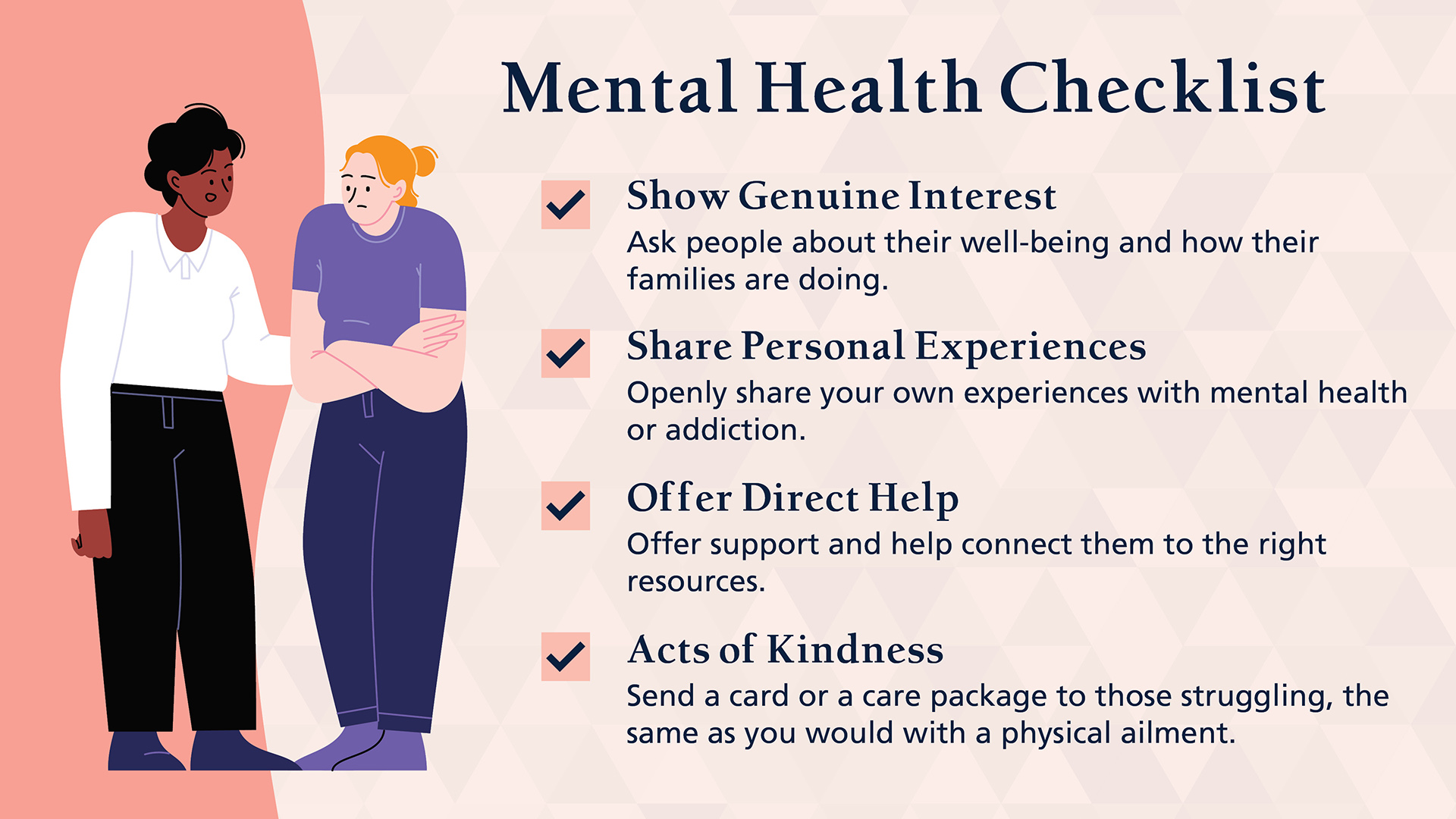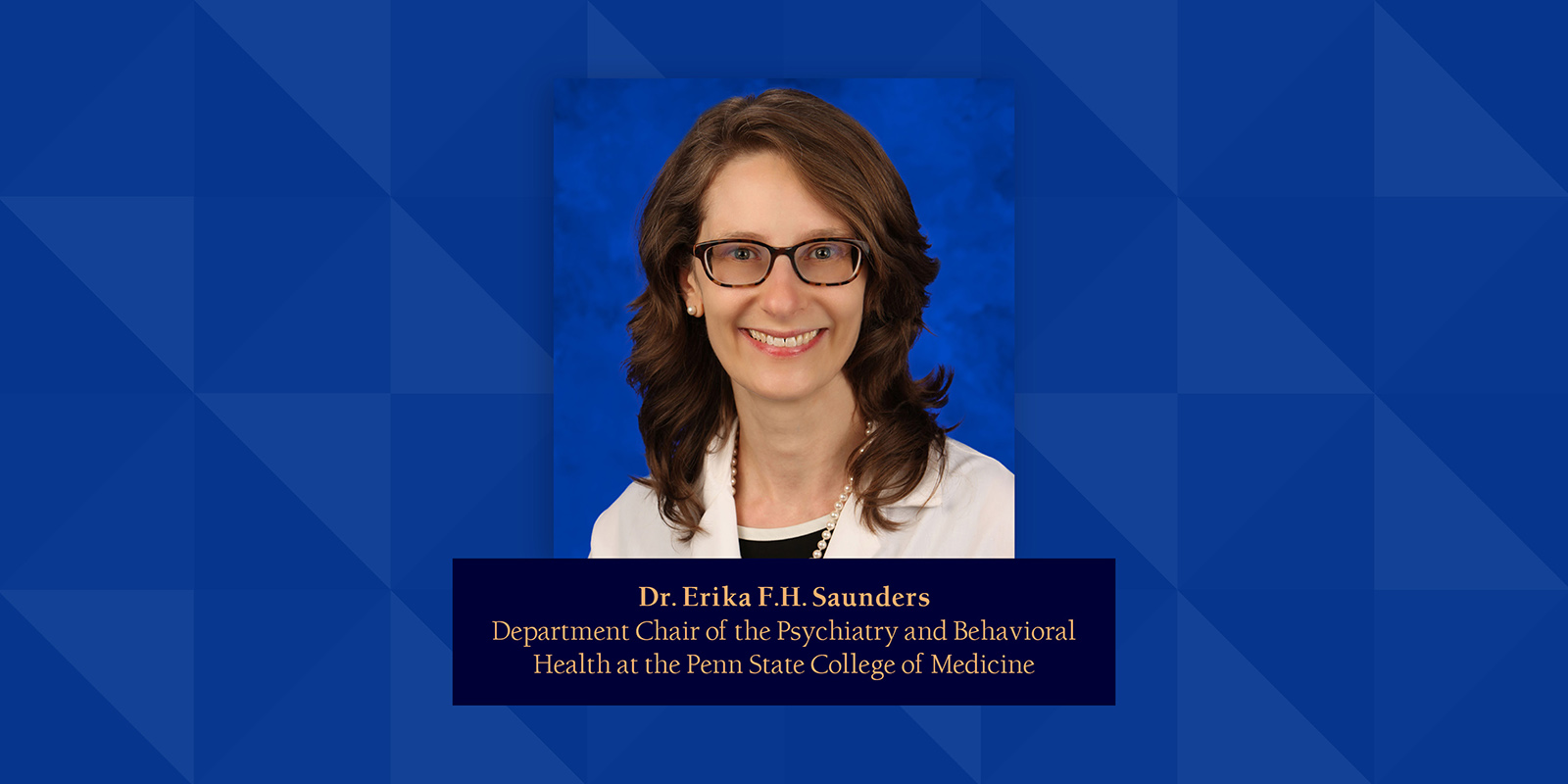“Everybody knows somebody who’s been affected by mental illness or an addiction, and letting folks know that you’re aware these issues exist, you’re a safe person to talk to, can be very useful,” said Dr. Erika F.H. Saunders, a leading mental health expert and professor and chair of the department of Psychiatry and Behavioral Health at the Penn State College of Medicine. This powerful statement underlines the universal impact of mental health issues and the importance of open discussions and support. In a world where mental health often carries a stigma, understanding and support from each one of us can make a significant difference.
In this article, guided by Dr. Saunders’ insights, we delve into how education, support systems and modern technology can make mental health care more accessible and effective. We will also explore why it’s crucial for everyone to be part of the solution in enhancing mental wellness in our communities. Discover how you can contribute to breaking down barriers and building a more supportive environment for mental health.
Education’s Role in Mental Health
Dr. Saunders explains that education is vital to understanding mental health. She said that by educating people, we can help them see that mental health issues are not different from physical health problems. This approach enables everyone to treat mental health with the same seriousness as physical health.
Dr. Saunders explained that it is important to highlight in education that “Mental illness and behavioral disorders are just like physical conditions,” and that they occur because of medical reasons.
When asked about expanding their knowledge, she advises patients and families to rely on their medical providers and trusted sources. Below is a short list of trusted information outlets:
- Depression and Bipolar Support Alliance
- National Institutes of Health
- American Foundation for Suicide Prevention
- National Alliance on Mental Illness
- Mental Health America
By teaching people about mental health, we can remove the shame and fear that often come with these conditions.
Building Awareness
Dr. Saunders highlights how advertisement campaigns and public figures who talk openly about their struggles can significantly improve public awareness.
Senator John Fetterman’s openness about his struggles with depression, particularly following a stroke, is a prime example of how public figures can influence the mental health conversation. By sharing his journey, Fetterman has shown that mental health issues don’t discriminate and can affect anyone, even those in high public office. His honesty not only helps to destigmatize depression but also encourages others to seek the help they need. Fetterman’s story is a powerful reminder of the importance of transparency in public life and its positive impact on widespread mental health awareness.
“Depression is so sinister because it convinces you that even though you won, you actually lost,” shared Fetterman on the social platform X in October 2023. “I was able to get help, and I have a duty and a privilege to have this conversation with anyone who’ll listen.”
Beyond advertising campaigns and outreach by public figures, community programs and local support play a prominent role in helping to grow the community’s knowledge about mental health issues. Programs like Mental Health First Aid, supported by the Pennsylvania Psychiatric Institute (PPI) and Penn State Health, show how communities can work together to support mental health. These efforts ensure people can get help without feeling judged.
Stephen A. Smith, the Ad Council and “Love, Your Mind” team up to say, “There’s no debate when it comes to mental health.”
Awareness doesn’t end with celebrity or community engagement programs but extends to conversations in our stores, jobs, schools, religious centers, and homes.
Support Systems and Local Help
Dr. Saunders discusses the challenges people face when trying to get mental health care, such as logistical issues and stigma. Support needs to be accessible and inclusive. Dr. Saunders emphasizes the importance of local resources, like the Mental Health Support Group at PPI or available school programs found through onsite counselors, which are key in giving timely and effective support. These local efforts ensure people have the help they need when needed, leading to a healthier community.
“The first thing to recognize is that resources are available whether or not you have insurance.” She explained, “The first place to start is your primary care office.”
Overcoming Barriers to Mental Health Care
To enhance access to mental health care, Dr. Saunders highlights key barriers and offers strategies to overcome them:
Transportation Barriers
Use county resources that provide transportation for medical appointments.
Over-reliance on a Single Provider
- Understand that modern mental health care involves a team approach, including various specialists.
- Broaden your search for help beyond just psychiatrists to include other mental and physical health professionals.
Telehealth / Internet Access Challenges
Visit public libraries, which may offer the necessary facilities for confidential telehealth appointments.
Taking Time Off Work
Request a medical note to inform your employer that you are undergoing treatment for a medical condition. This helps secure the necessary time off without disclosing specific details.
“Addressing barriers to mental health care is crucial,” said Dr. Saunders. “We must ensure access to resources, support diverse care teams, and make services inclusive. Overcoming these hurdles is key to effective treatment.”

The Future of Mental Health Care
Looking ahead, Dr. Saunders is optimistic about the future of mental health care, especially about better and more personalized treatment. “In the next five to 10 years, I see improvements in connecting people to mental health care. We’ll ensure they receive the right type of care from the right professionals at the right time and are guided by the best treatments available,” she shares.
Digital tools, like apps and online services, will continue to be a part of our mental health care if used carefully and with professional advice. There are many tools out there now, but not all are based in scientific evidence. She shared, “The current AI-based tools are not a replacement for a therapist. They can easily say harmful things because they are not human intelligence.” Further explaining, she pointed out that while AI technology is advancing and there is significant interest in using AI for therapy, the current technology cannot yet match human therapists’ nuanced understanding and empathetic response. Dr. Saunders sees potential in AI helping with certain aspects of care in the future. She emphasizes that careful testing and validation are needed to ensure these tools are helpful and not harmful. Ask your doctor or rely on trusted organizations for a recommendation.
She sees a promising future, focused on removing barriers, improving personalized care, and ensuring everyone has the support they need.
If you are looking for help with mental health care, you are not alone. Visit the PPI website for more information and resources. You can also call the Admissions Department at 717-782-6493 or 866-746-2496 24 hours a day, seven days a week.
Together, we can increase understanding and build support systems to help those facing mental health challenges.

